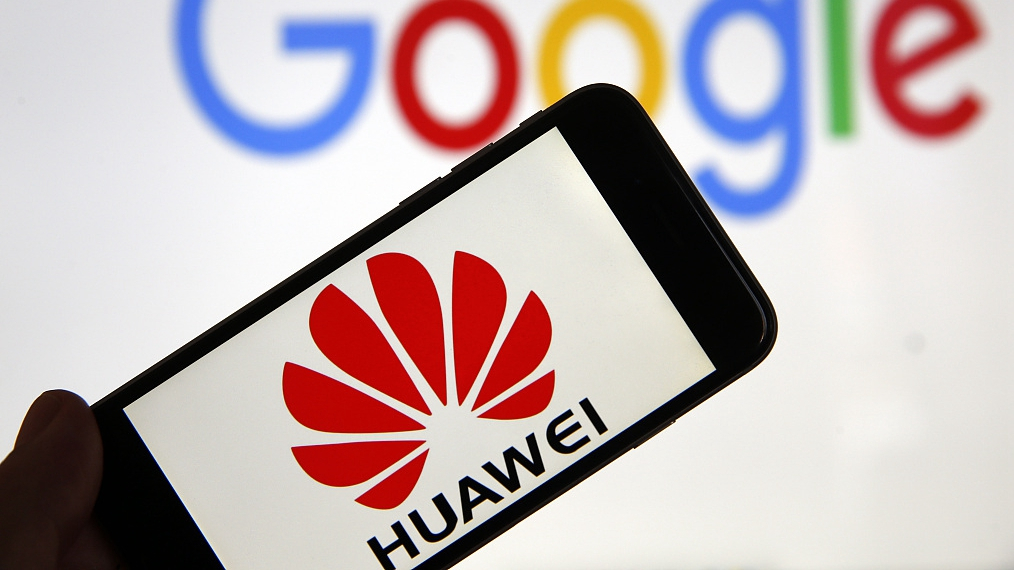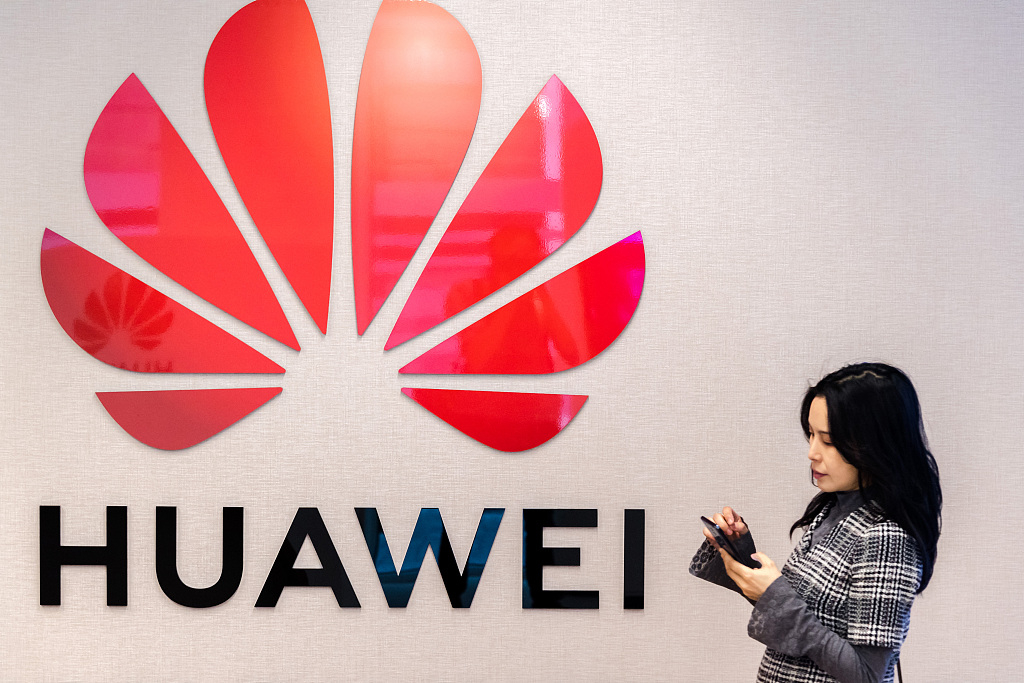
TV Show
11:25, 22-May-2019
Expert: Huawei isn't a threat to U.S. national security
The Heat
01:58

The United States is now targeting Huawei, the second largest smartphone producer in the world. Last week, the Trump administration added Huawei to a list that bans it from getting technology from U.S. companies without approval. And Google announced it is limiting the software services it provides to Huawei, including much of the Android operating system for mobile phones. But, late Monday, the U.S. Department of Commerce announced it is easing up.
Huawei has already known that this restriction could happen and it is looking for other suppliers. A lot of rural communities in the U.S. rely on Huawei's equipment because it is cheaper and more efficient, and they would be cut out and have their communication at risk.
Jeff Moon, an international consultant who served as the assistant U.S. Trade Representative for China during the Obama administration, thinks Huawei's addition to the blacklists means any firm that wants to transfer technology to Huawei will need a license. The 90-day reprieve means that these limiting measures would be taken but not have an immediate impact.
“This is a major turning point in American policy. China has used national security grounds to ban many U.S. tech companies and social media sites, but the U.S. has never reciprocated. This is perhaps the first time the U.S. really talks about doing that,” Moon said. He stated that there could be a change within 90 days.
“We need to think about national security and narrowly tailor national security to address specific national security needs,” Moon said. He also suggested China needs to reconsider whether Wikipedia is a threat to its national security. One of the most damaging aspects to Huawei is the loss of Google apps in third countries.
When the trade ban was initially announced, chipmakers like Intel stated that they could no longer supply critical software to Huawei. Though there is a pause, the basic bans still exist. Xu Qinduo, a senior fellow at the Pangoal Institution, believes the most important impact on Huawei would be its phones sold in the European market. “Its phones do not have a security threat to U.S. national security or personal information. I know the U.S. has mostly concerned the 5G services of Huawei,” he said. “It is a critical juncture. We will see whether Huawei will survive, whether Huawei will continue its phone business and 5G services.”

An attendee uses a smartphone as the Huawei Technologies Co. logo sits on a wall at the company's Cyber Security Transparency Center in Brussels, Belgium, May 21, 2019. /VCG Photo
An attendee uses a smartphone as the Huawei Technologies Co. logo sits on a wall at the company's Cyber Security Transparency Center in Brussels, Belgium, May 21, 2019. /VCG Photo
“I agree the two sides should sit down and talk about the national security, including apps like Google. If the U.S. is concerned with that, it should talk to the Chinese side. But now the U.S. is trying to kill a company which most Chinese people feel proud of it, it will make people think the U.S. is not reliable,” Xu said. For the sake of companies in the two countries, he encourages the two sides to continue the discussion.
Yan Liang, an associate professor of economics at Willamette University, indicated the ban on Huawei means the Trump administration is adding more leverage for the trade negotiations. She thinks if American technology companies cannot sell their supplies to Huawei, their own business will be undermined.
Yan pointed out that European and Asian companies will not follow this ban. Moreover, Huawei has prepared for this ban since 2018; they reduced the reliance on American companies and developed their own chips. Thus, Yan believes Huawei will find alternative suppliers in Japan and the Republic of Korea (ROK).
Sourabh Gupta, a resident senior fellow at the Institute for China-America Studies, suggests the national security argument has been intimately connected in the course of the trade negotiations with the telecoms issue. “It is not just a technology competition issue,” he said, “if U.S. and China can reach a good trade investment in IPR agreement, we will also simultaneously see the U.S. taking a more liberal approach in core and foundational technology sharing between the two sides.”
Both Gupta and Yan think this ban will only contribute to a lose-lose situation. Gupta thinks in terms of the relative losses, the Chinese side will lose more than the America side. China will have difficulties in developing innovation in core and foundational technology, “but if they do master that process, your (the U.S.) markets will be gone forever,” Gupta said.
Moon also believes both countries will lose the battle and lose the war, so both sides need to get back to negotiation. “Equality is what this negotiation all about,” he said. China runs a 350-billion-U.S.-dollar annual surplus with the U.S., “we need to get back to an equal and mutually beneficial trading relationship,” he added.
“The Chinese side is ready for more talks to reach a deal, but the U.S. side is moving the war,” said Xu.
The Heat with Anand Naidoo is a 30-minute political talk show on CGTN. It airs weekdays at 7:00 a.m. BJT and 6:00 p.m. Eastern in the United States.
(If you want to contribute and have specific expertise, please contact us at opinions@cgtn.com.)

SITEMAP
Copyright © 2018 CGTN. Beijing ICP prepared NO.16065310-3
Copyright © 2018 CGTN. Beijing ICP prepared NO.16065310-3